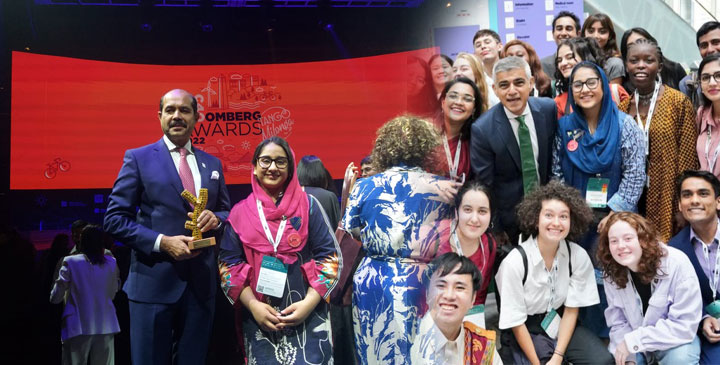By: Ayesha Noor
Among the 45 countries tottering on the brink of famine (WFP & FAO, 2022), Pakistan is a recent addition to the list. The country had been experiencing an economic recession at an alarmingly high inflation rate of 27.3 percent. The situation has recently been exacerbated by the catastrophic torrential floods that wreaked havoc on not only lives and property, but also obliterated around 80-90 percent of crops and perished 800,000 livestock. The impending food crisis now lurks in the aftermath, the consequences of which are beginning to precipitate in the inflation readings. WFP estimates that 43 percent of Pakistanis are food insecure and warns that the percentage is expected to rise to 60 percent by 2050.
While food insecurity depicts a causal relationship with the economic recession, it also tends to adversely affect the health and mental well-being of children and adults, particularly women. The adverse prenatal and pediatric outcomes of food insecurity are also well documented.
According to a recent report published by the Food and Agricultural Organization (FAO, 2020), 50.4 percent of Pakistani women are reported to be anemic, and more than 40 percent are vitamin A and iron-deficient compared to the global average of 17 percent which is comparatively much less. This has serious implications for the future of Pakistan where each year, 177,000 deaths in Pakistan are linked to maternal or child malnutrition. The recent flash floods in Pakistan further aggravated malnutrition where 1 in 9 children across flood-hit areas is diagnosed with acute malnutrition. Maternal undernutrition in Pakistan accounts for more than 20% of childhood stunting and wasting with irreversible effects. This has resulted in a cross-generational cycle of poor development and growth among children, particularly the girls who as adults are giving birth to stunted offspring with physical and learning disabilities. If the cycle continues unabated, this could be the beginning of another humanitarian crisis in Pakistan.
The author is a student of NUST Islamabad and a freelance columnist








